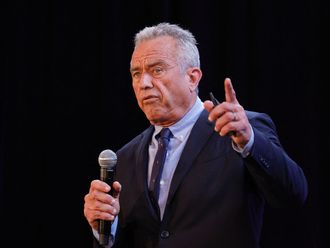Havana
Cuba blamed a car accident that killed leading dissident Oswaldo Paya on the driver’s loss of control Friday, alleging that he applied the brakes abruptly on a slippery surface while speeding.
“Lack of attention to control of the vehicle, excess velocity and the incorrect decision to abruptly apply the brakes on a slippery surface were the causes that resulted in this tragic accident,” the interior ministry said.
Paya’s death in the July 22 accident in southeastern Cuba had prompted a US call for a “transparent” investigation after his family said it had information that his rental car was driven off the road by another vehicle.
The government statement - the most detailed yet on the accident - made no mention of another vehicle.
It cited three witnesses, including the driver, to back up its conclusion on the cause of the accident.
The driver, Angel Carromero, a 27-year-old from Spain, has been held in police custody since the accident and has made no public comment.
A second survivor, 27 year-old Jens Aron Modig of Sweden, was being held at an immigration detention centre in Havana, Swedish officials said.
Paya, 60, winner of the European Parliament’s 2002 Sakharov prize, died along with Harold Cepero Escalante, a 31 year-old Cuban dissident, in the crash.
According to the government, the rented vehicle that Carromero was driving was barreling down the highway “at an average speed above 120km per hour,” even though the stated maximum highway speed was 60km an hour.
Carromero then hit a patch of gravel on the road near the town of Bayamo in southeastern Cuba and slammed on the brakes. The car slid off the road and crashed into a tree.
A door in the rear of the car, where Paya was sitting, was especially damaged by the tree.
“The report from the forensic doctor indicates that Oswaldo Paya died instantly due to head trauma caused by the powerful impact,” the government statement read.
The government report added that Carromero, who has been detained since Monday, told investigators that “he did not recall seeing signs calling attention to the (bad) road conditions”.
But that particular stretch of highway was unpaved and covered with gravel, making it especially slippery in the rain, according to the report.
Paya’s daughter, 23-year-old Rosa Maria Paya, sharply questioned the official Cuban account of her father’s death in an impassioned statement delivered at her father’s funeral Wednesday before an audience that included leaders of Cuba’s Roman Catholic church.
Rosa Maria said her skepticism of the official version was based on “the repeated threats against the life of my father and our family.”












